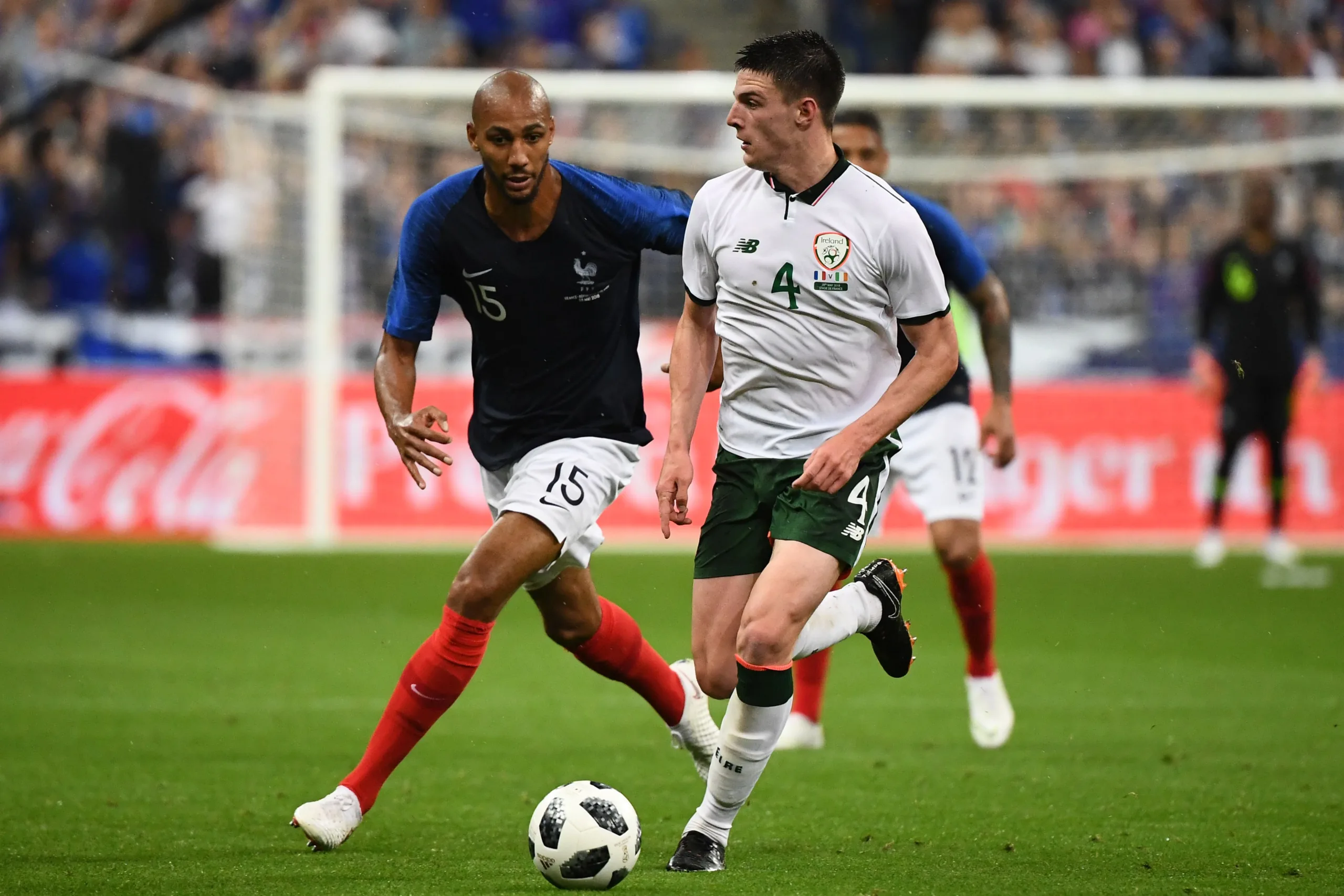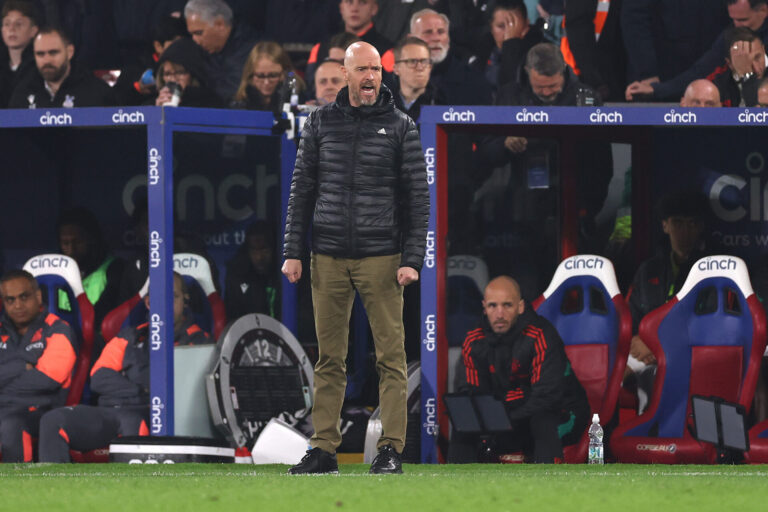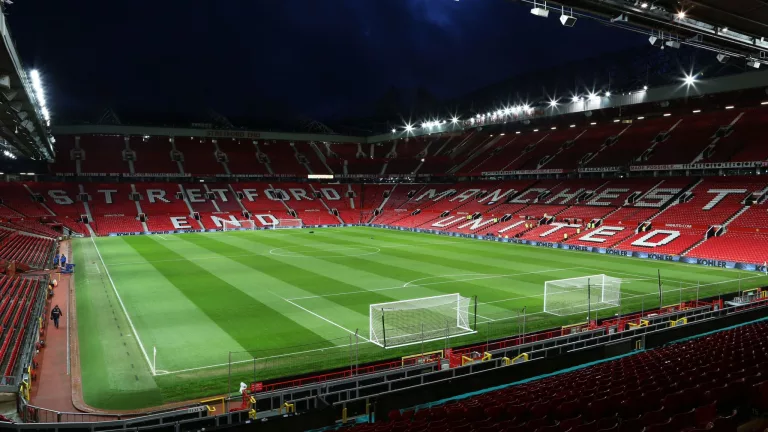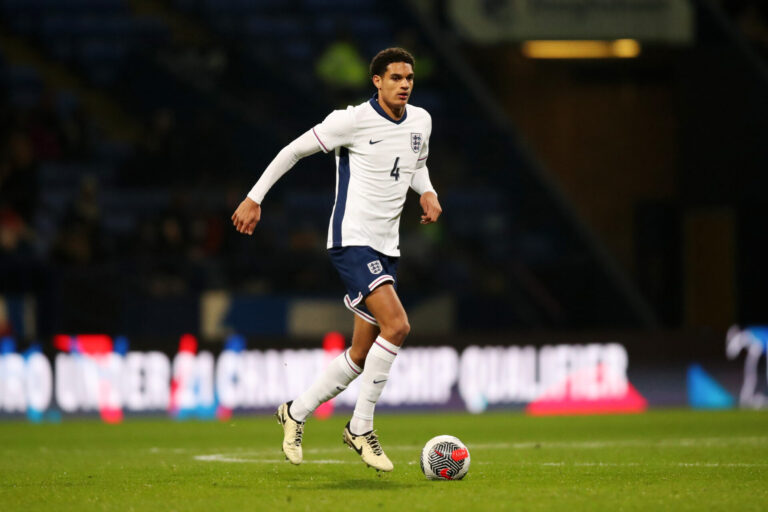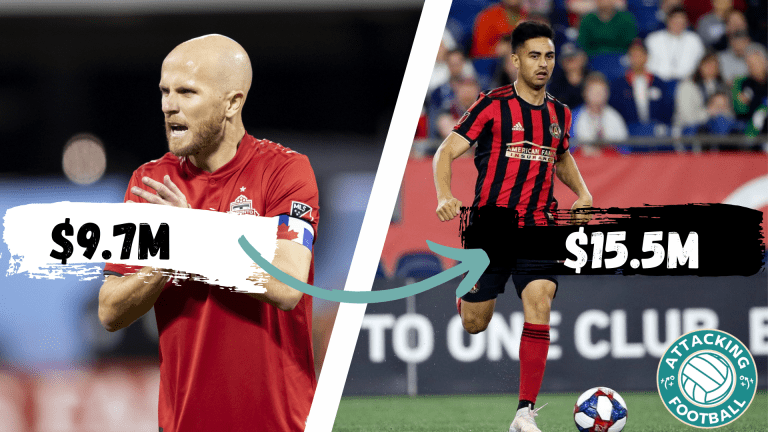6 Dual-Nationality Players Who Switched Country Allegiances
International allegiance is a straight-forward subject in most cases, but for some who may be eligible for more than one country, it can be a very complicated one. In an ever-evolving international football landscape, the pivotal decision of who young footballers choose to represent often brings much controversy and debate, especially when some are considered “dual-nationality players.”
Several factors have to be considered, whether it’s making the right decision for their football career, honouring the heritage of their family or delving into their own national identity to feel where they belong.
These factors are hard to establish for any youngsters starting out in an international team’s underage ranks. However, as they get older, they get a better sense of what country they should represent. This often leads to players representing one nation at underage levels and then switching allegiance to another before they get to the senior level. Although it tends to happen far more rarely, there have been several players who have changed the country they represent, despite walking out in the colours of the first nation they chose and being capped in the senior squad.
The circumstances around why this happens can be examined by looking at several different instances. This way, we get to see what goes into the decision to switch nationalities at such a late stage. There is obviously a reason that they made a senior debut for the first country, so at what point do they change their mind?
Dual Citizenship
Brahim Diaz, Real Madrid (Spain to Morocco)
Brahim Diaz was born in Malaga to a Spanish mother and Moroccan father. Diaz represented Spain through the underage ranks and even once at the senior level. Diaz’s Spanish debut came in unusual circumstances, as several players on the team were in isolation after the positive COVID-19 test of Sergio Busquets.
The Spanish Football Federation made the decision to call-up the U-21 squad for the friendly against Lithuania in June 2021. Diaz impressed on his debut, scoring the second goal as Spain ran out comfortable 4-0 winners.
This would turn out to be Diaz’s sole appearance for the senior Spanish squad, as he didn’t receive another call-up in the years that followed. This was despite his good form for AC Milan and his resurgence into becoming an important player for Real Madrid this season.
The former Manchester City man has 9 goals and 5 assists for Los Blancos this season, which still wasn’t enough to pave his way into the Spanish national team fold. With manager Luis De La Fuente preferring other attacking options.
The Real Madrid attacker grew tired of his lack of chances with La Roja and recently switched allegiance from Spain to represent Morocco at the international level. He now looks to become an integral member of their squad. The switch was straightforward under FIFA’s regulations, with Diaz holding dual citizenship for both Spain and Morocco. The decision to switch appears to come from a footballing angle. Diaz can be a protagonist within a strong Morocco team rather than a bit of a player for Spain.
Brahim Diaz made his debut for Morocco recently in a narrow 1-0 win in a friendly over Angola. Diaz played 87 minutes for the Atlas Lions as they looked to prepare themselves for the upcoming World Cup qualifiers. Diaz featured once again in the win over Mauritania, playing the full game and surpassing his appearance tally for Spain after just one international break of being available for Morocco.
Jermaine Jones, Retired (Germany to USA)
Jermaine Jones is one example, as he was born in Frankfurt, Germany, and grew up holding dual citizenship between Germany and America. Jones played for the German underage teams before going on to play three times for the senior squad in 2008, following good performances for the Schalke 04 team during that time.
These appearances all came in friendlies in games against Austria, Belarus and England throughout 2008. Jones time in the Germany squad was short-lived, as manager Joachim Low made it clear that he wouldn’t be part of his plans going forward.
Due to his dual nationality, Jones made the decision to switch his allegiance to the USA. He made his debut in a friendly against Poland in Chicago in October 2010 and quickly went on to become an integral member of Bob Bradley’s team.
Jones is best known for his performances for the United States of America on the international stage. He was a crucial part of their 2014 World Cup team, scoring against a formidable Portugal team in the group stages to help the USA advance to the knockout rounds before ultimately losing to Belgium. He made 69 appearances for them, scoring 4 goals and making his final appearance in 2017 against Panama.
Jones was happy to represent Germany until he realised he was no longer in the manager’s plans so his switch to the USA was a purely footballing decision. Thankfully, his three appearances for Germany all came in friendlies, allowing him to switch.
IN CASE YOU MISSED IT: Football Has an Ownership Problem
Thiago Motta, Retired (Brazil to Italy)
In contrast, Thiago Motta decided to switch allegiances based on identity rather than football. The current Bologna coach was born in Sao Paulo, Brazil, but has dual citizenship with Italy. This is where his grandfather was from, before they relocated to South America in the early 1900s.
Motta played three times for the Brazil U-17 team, scoring once as he began to become a regular on Barcelona’s B team. Motta can certainly count himself unlucky that the other two midfielders emerging from the Barcelona B team during this period were Xavi and Iniesta, whom he would directly compete against as he broke into the first team.
He appeared 96 times for Barca but he suffered injuries later in his career and struggled to get back on track. Following Brazil’s World Cup victory the previous year, Luiz Felipe Scolari called him up to represent them, who at the time were the best international team in the world.
Motta was called up for the Gold Cup, where he appeared twice in games against Honduras and Mexico. As the Gold Cup was a fully recognised FIFA competition, these caps were competitive, which would usually mean that switching allegiance was no longer an option for the midfielder. However, due to the fact that he held dual citizenship, FIFA gave players the opportunity to shift their international loyalty.
Motta didn’t appear for Brazil after this and subsequently made use of this rule as he declared his intention to play for the Italian National team. Motta made his debut for the Azzurri in 2011 in a friendly against Germany as they prepared for Euro 2012. He appeared for Italy in the 2012 and 2016 European Championships and the World Cup in 2014, and he went on to earn 30 caps, scoring once.
In a press conference in the build-up to the 2014 World Cup, Motta was asked about his decision to represent Italy over Brazil, and he reflected honestly on how he came to his decision. The former Inter Milan midfielder said, “I never dreamed of playing for the Brazil senior side; I never had the desire that all Brazilians have to play for the Seleção, it’s a beautiful dream and I respect it but I never shared it.”
“I feel like an Italian who was just born in Brazil, thanks to my family, I had the privilege and fortune to get an Italian passport, I grew as a footballer and as a person, thanks to Italy.”
– Thiago Motta
The quotes made for interesting reading, as it’s a rare case where a footballer speaks so candidly about the reasons behind why they chose one country over another. Dual citizenship certainly played a big role in the trajectory of Motta’s international career, as if he didn’t have it, he wouldn’t have been able to switch to Italy.
It begs the question of how many footballers may want to change nationality due to them discovering their identity more as they get older but are restricted because they may have played a competitive game for a country as a youngster.
Switching to Country of Birth
Declan Rice, Arsenal (Republic of Ireland to England)
Declan Rice is an absolutely integral member to England’s team and will be one of the first names on the team sheet in the summer for the European Championships in Germany. The Arsenal midfielder is having a stellar season in the Premier League as the Gunners look to get their hands on the title for the first time in twenty years. Rice won his 50th cap in the win over Belgium as he led out the Three Lions as captain for the very first time.
Rice made his international debut for England in 2019 but things could have been so different for the former West Ham captain, as he played three times the year before for the Republic of Ireland. Rice represented Ireland all through the underage levels, including U17, U19, and U21, as he was eligible through his grandparents, who were from Cork.
Rice was thriving in these teams and looking like a future senior international, as he won the U17 player of the year. Rice appeared in friendlies for the senior side against France, USA and Turkey. For the Republic’s match against Wales in August 2018, Martin O’Neill called Rice up.
He was then omitted, with O’Neill citing that Rice was weighing up his options on whether he wanted to stay with Ireland or switch allegiances to England. He took his time mulling over the decision but in February 2019, he ultimately decided to represent the country of birth in England, making his debut at Wembley against the Czech Republic as a substitute.
Overall, you can’t blame Rice for deciding to represent the country he was born in and grew up in for all of his life. However, the fact that he used the Republic of Ireland youth setups as a stepping stone for England still leaves a bitter taste in Irish fans mouths.
Wilfried Zaha, Galatasaray (England to Ivory Coast)
Zaha was born in Abidjan, Ivory Coast but his family moved to London at the age of four. He joined Crystal Palace at the age of eight before eventually making his debut in 2010. Zaha quickly made a name for himself, earning the title of young player of the year in 2012. As Crystal Palace pushed for promotion, he cemented himself as one of the brightest prospects in English football.
He represented England at U19 and U21 levels before eventually going on to play for the senior side under Roy Hodgson. The winger made his debut for the Three Lions as a substitute against Sweden, with all signs suggesting that he was going to become an integral player for an England side that was going through a transition. Many big names of the past were moving on, and fresh faces were starting to come through.
This call-up proved to be a once-off for Zaha, as he didn’t receive another one despite his good form for Crystal Palace throughout the following seasons. The fact that he only participated in friendlies left the door open for Zaha to play elsewhere and in 2016, Zaha made his decision to switch allegiance to his country of birth, Ivory Coast.
England manager Gareth Southgate attempted to change the winger’s mind but to no avail, as he was called up to the Ivory Coast squad for the 2017 African Cup of Nations. Zaha made his first appearances for the Elephants in games against Sweden and Uganda, where he provided a goal and an assist, making an immediate impression. Zaha went on to play 33 times for the Ivory Coast, scoring 5 goals and appearing in two AFCON tournaments.
Switching After Becoming a Citizen
Diego Costa, Grêmio (Brazil to Spain)
Costa was born in Lagarto, Brazil, and has no familial connection to Spain. He became one of Europe’s top strikers during his time at Atletico Madrid, from 2010 to 2014. His prolific goalscoring and tenacious work rate earned him a call-up to the Brazilian national team in March 2013.
Costa made his debut for the Seleção in a friendly against Italy before going on to make his second appearance four days later at Stamford Bridge in a 1-1 draw with Russia.
Costa was breaking into the Brazil team at the perfect time, as they were preparing for a home World Cup in 2014, where they would be seen as one of the favourites. Costa’s scintillating form for Atletico would surely give him a good chance at playing a large role in attack for the Brazilians.
Costa’s application for Spanish citizenship was granted the following July due to his extended time there but there was no immediate indication that it would affect his international career. Things changed quickly, though, as the Spanish Football Federation made a request to FIFA to call up Costa for selection in September 2013. Under FIFA rules, Costa would still be eligible to represent Spain as he didn’t play competitively for Brazil and only appeared in two friendlies but the decision was still ultimately up to the player.
On October 29, 2013, Costa declared his intention to represent Spain to the Brazil Football Confederation, which believed that Costa had ulterior motives and didn’t deserve to have Brazilian citizenship after the fiasco.
Costa went on to represent Spain in two World Cups in 2014 and 2018. He scored 10 goals in 24 appearances for Spain.
The Dilemma For Dual-Nationality Players
Every young footballer’s aspiration is to play for their country but it doesn’t always work out as planned. Players thought process around these decisions is usually based around probability of gaining caps with one country compared to another.
This often leads to players declaring for another country they are eligible for, which is perceived to be of lesser quality, in order to be a more central figure within that squad. The fact that this is often the main reason makes the situations listed above unique. This is due to those footballers already achieving the goal of obtaining a cap for a country, which shows that they have the quality to play for these nations.
Each of these players had certain circumstances which went into the decision around their international allegiance. Brahim Diaz, Jermaine Jones, and Thiago Motta had to choose between each of the two countries for which they held citizenship.
Declan Rice had to choose between his country of birth and a country where his relatives resided. Wilfried Zaha had to choose between his country of birth and the country he moved to as a child and was raised in. Diego Costa had to choose between his country of birth and the country which he gained citizenship to after spending many years there.
Each of these situations presents its own unique set of circumstances but the fact that many of these players found solace and a sense of belonging in the country they switched to shows how difficult these decisions are.
It is common in international football today for many players to be eligible for multiple countries but the majority fully commit to one. However, it is a rare occurrence where players play at senior level for one country and switch to another. Their experiences illustrate the predicament which many multinational players find themselves in as they look to carve out a legacy playing for their country.
However, we should never judge a player for wanting to switch. After all, it is their national identity and not ours.


